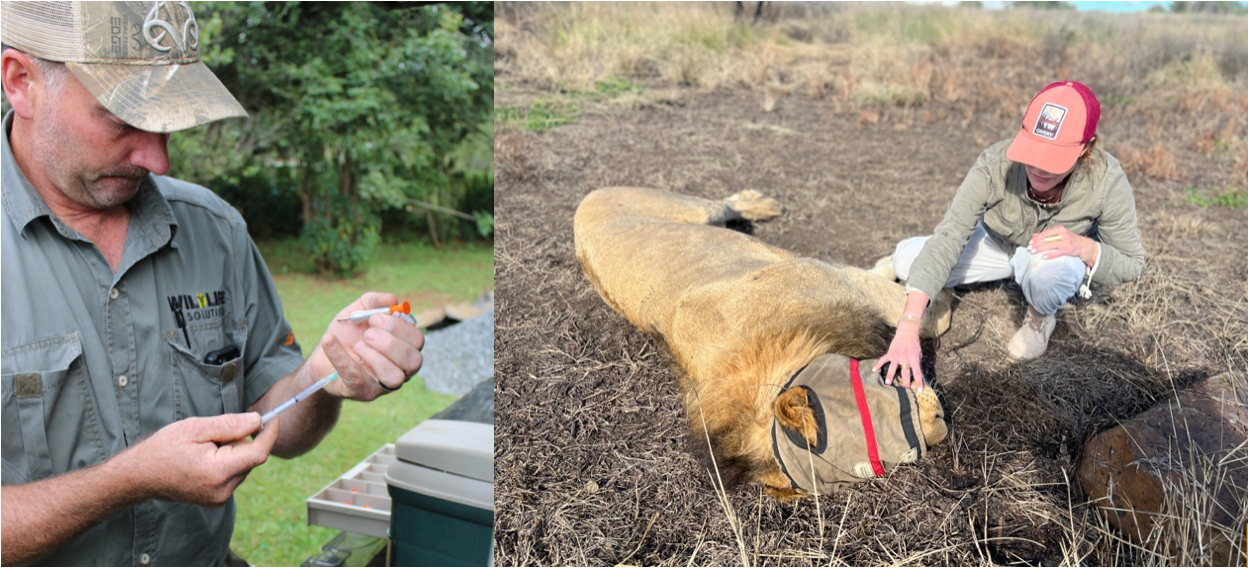Lion Conservation Work South Africa- Beyond Amazing

May 2025
Observing wildlife veterinary work up close with Dr. Ryan van Deventer of Wildlife Solutions was nothing short of incredible.
I had the privilege of working alongside some of South Africa’s top wildlife vets during the relocation of three sub-adult lions—a powerful experience on every level.
A huge shout-out to Dr. Ryan. Calm, professional, precise, and deeply knowledgeable—his presence puts everyone at ease, animals and humans alike. He approaches each procedure with care, clarity, and deep respect for the wildlife he works with.
Truly one of the best. A joy to be around and a force for good in the world of wildlife conservation. 👏🦁🌍
These young lions were entering adolescence and beginning to challenge the pride's dominant male—a natural but dangerous shift. To prevent escalating conflict, potential inbreeding with their mother, and disruption to the reserve’s broader ecosystem, they needed a new home: a place with enough land to roam freely, form their own pride, and thrive.
The vets approached the move with exceptional care. Each lion was darted from a helicopter, health-checked, and monitored closely. They spent a few days in a large outdoor boma to acclimate before being transported by specialized truck to their new reserve.
Because reserves in South Africa are fenced—unlike open ecosystems in countries like Kenya or Zambia—management and careful relocations like this are vital for long-term conservation. I'm happy to report the lions are doing really- well in their new home.
Being this close to lions, part of such a significant operation, was unforgettable. Wild, emotional, and deeply humbling.
Here’s some interesting things Wildlife Vets Check Before Moving Lions
When relocating lions, vets need to ensure the animals are healthy, safe to transport, and won’t pose a risk to the new ecosystem.
Health & Safety Checks
- Sedation: Precise dosage is crucial—too little is dangerous, too much can harm the lion.
- Vitals Monitoring: Heart rate, breathing, temperature, and oxygen levels are watched closely.
- Full Physical Exam: Teeth, joints, body condition, and signs of injury or illness.
- Disease Screening: Blood tests for infections like FIV or TB, and parasite checks.
- Genetics & ID: DNA samples taken, microchips or ear notching for tracking. We did all of this!
Other Key Considerations
- Behavior: Observed for stress, social behavior, and readiness for release.
- Reproductive Status: Especially important in preventing inbreeding or stress during pregnancy.
- Vaccinations: Given if needed, based on disease risk in the new area.
Because South African reserves are fenced, lion relocations must be carefully planned to avoid conflict and support long-term conservation goals.
I’d be so lucky to do this again!
